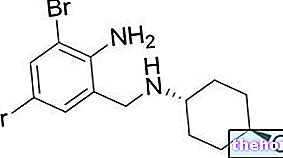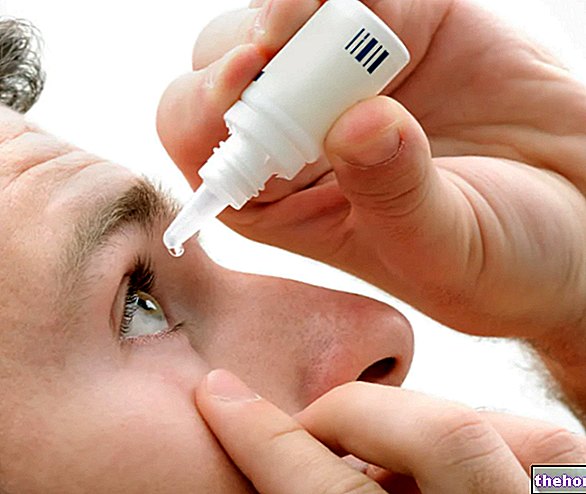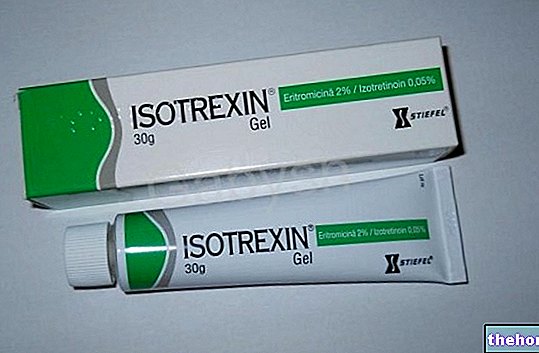Definition
In the medical field, the term "rhinitis" refers to an "inflammation of the mucous membranes of the nose: the inflammatory process, with an acute or chronic course, is a consequence of bacterial, viral or irritating insults. Rhinitis should not be underestimated, since it can degenerate into other disorders such as insomnia, learning difficulties and hearing impairments.
Causes
We talk about allergic rhinitis (or hay fever) when exogenous antigens (or allergens) are involved. Non-allergic rhinitis can be caused by immunodeficiency, hormonal changes, emotions, reactions to food, stress.
Symptoms
Rhinitis is generally accompanied by halitosis, altered perception of the taste of food, conjunctivitis, fever, headache and cough; the typical symptom of rhinitis is rhinorrhea, the continuous emission of mucus from the nose.
The information on Rhinitis - Rhinitis Treatment Drugs is not intended to replace the direct relationship between health professional and patient. Always consult your doctor and / or specialist before taking Rhinitis - Drugs for the Treatment of Rhinitis.
Medicines
For the pharmacological treatment of rhinitis (non-allergic), oral / nasal decongestants sprays, anticholinergics are particularly suitable and, in case of severity, the use of nasal corticosteroids is recommended. In the presence of allergic rhinitis, the drugs of choice are antihistamines.
Some studies have observed how the applications of pharmacological formulations based on capsaicin in patients suffering from rhinitis, can help the patient to speed up the recovery from the disease; however, there is not yet sufficient evidence to prove its full effectiveness.
The following are the classes of drugs most used in the therapy against rhinitis, and some examples of pharmacological specialties; it is up to the doctor to choose the most suitable active ingredient and dosage for the patient, based on the severity of the disease, the state of health of the patient and his response to treatment:
Saline solutions spray: saline solutions (saline solution: eg Libenar, Naset Spray) help to irrigate and free the nose of excess mucus, thus proving to be a valid remedy to clean the breath canal and soothe the nasal membranes at the same time. Furthermore, in case of rhinitis, the application of saline solutions, repeated several times during the day, is indicated to reduce the dryness of the mucous membranes of the nose (rhinitis caused by excessively dry dust / air), maintaining the functionality of the nasal apparatus. (air filtration and defense).
Anticholinergic (or antimuscarinic) nasal sprays:
Ipratropium (eg. Atem, Breva): although generally indicated to treat asthma, this drug is also available in drops for the treatment of chronic forms of rhinitis - allergic and non-allergic - in particular to treat rhinorrhea. two spray applications (42 mcg) in each nostril, two or three times a day.
Oral decongestants: to be used with caution prior to medical prescription, as they can create unpleasant side effects such as insomnia, hypertension, loss of appetite, palpitations and anxiety. They are used both for the treatment of allergic rhinitis and for the non-allergic form.
- Pseudoefredina (eg Actifed, Actigrip): pseudo-ephedrine is probably the drug most used in therapy as a nasal decongestant, also (but not only) in the context of rhinitis; the drug is used both in combination with other drugs (eg antihistamines, Paracetamol), and in monotherapy. Pseudoephedrine stimulates the release of norepinephrine, thus producing a good constricting effect of the blood vessels. Begin therapy by taking 30-60 mg orally every 4-6 hours, as needed. Continue therapy by taking 120 mg of active twice a day. Do not exceed 240 mg per day. Consult your doctor.
- Phenylephrine (eg Isonephrine, Fenil CL DYN, Triaminic FLU, Nasomixin CM) take 10-20 mg (1 tablet) of active ingredient orally every 4 hours. The drug is also available in the form of an oral suspension, chewable tablets, patches, effervescent tablets.
Decongestant nasal sprays: not to be used for more than 4-5 consecutive days: the abuse of these drugs can paradoxically worsen symptoms, as well as cause insomnia, irritability and headaches.
Oximetazoline hydrochloride, 0.025-0.05% solution (eg Vicks sinex, Oxilin, Equimet): apply 4-6 sprays in each nostril twice a day, as needed, for 0.025% solutions and 2-3 applications for each nostril twice a day for 0.5% solutions.
Nasal spray corticosteroids: indicated in case of non-response to the use of decongestants and antihistamines. The use of corticosteroids is also indicated in case of non-allergic rhinitis. Don't forget that these drugs can induce nausea, digestive upset, headache and joint pain.
- Fluticasone (eg Avamys, Fluspiral, Flixonase, Nasofan) indicated for the treatment of non-allergic rhinitis. Start the treatment by applying two sprays of the drug per nostril twice a day (dose per nostril: 50 mcg; total dose: 200 mcg). The dosage can be reduced by half (one spray per nostril once a day) as symptoms improve. Do not exceed 200 mcg per day.
- Mometasone (eg Nasonex, Rinelon): indicated for the treatment of rhinitis on an allergic basis. Apply two sprays to each nostril once a day. The drug is sometimes used as a prevention of allergic rhinitis: start therapy 2-4 weeks before the pollen season.
Sodium cromoglycate (eg Lomudal Nasale)
This substance, administered nasally, is the drug of first choice for the treatment of rhinitis in children; Cromoglycate sodium can also be administered to pregnant women. It is recommended to take the drug (4% solutions) at the dosage of one spray per nostril, 2-4 times a day.
Oral antihistamines: indicated for the treatment of rhinitis on an allergic basis:
- Diphenhydramine (eg Aliserin, Diphenes C FN) indicated, in particular, for childhood allergic rhinitis. Administer a dose of 6.25 mg orally every 4-6 hours (do not exceed the dose of 37.5 mg per day) for children aged 2 to 6 years. From 6 to 12 years, it is possible to increase the dose from 12.5 to 25 mg every 4-6 hours (not more than 150 mg per day). From the age of 12, it is possible to administer a drug dose of between 25 and 50 mg every 4-6 hours (not to exceed 300 mg per day).
- Loratadine (eg Loratadine, Fristamin, Clarityn) the recommended dose for the treatment of allergic rhinitis is 10 mg per day. The duration of therapy must be determined by the doctor.
- Desloratadine (Eg Neoclarityn, Azomyr, Aerius): indicated for the treatment of allergic rhinitis. Available in 5 mg tablets, 5 mg dispersible tablets (lyophilisate), 2.5-5 mg buccal tablets and syrup. Administer 5 mg of active, once a day, with or without food. Some pharmacological preparations are formulated with desloratadine and pseudo ephedrine (eg Aerinaze), at a dose of 2.5 and 120 mg respectively: the two active ingredients perform antihistamine and decongestant activity.
Topical antihistamines: indicated for the treatment of allergic rhinitis: Azelastine (eg Lasticom, Allespray): this drug has proved very useful for the control of symptoms related to allergic rhinitis. This active ingredient is considered a cross between a corticosteroid and cromolyn sodium, being less potent than the former, but more effective than the latter. Used in the prophylaxis of seasonal allergic rhinitis, the treatment can begin as early as three weeks before the beginning of the pollen period, and should generally be continued for three months. For the treatment of seasonal allergic rhinitis it is recommended to spray the drug (0.1% ) once or twice per nostril, twice a day For the treatment of chronic allergic rhinitis, the dosage of the drug (0.15% solution) involves applying two sprays to each nostril, twice a day.



























